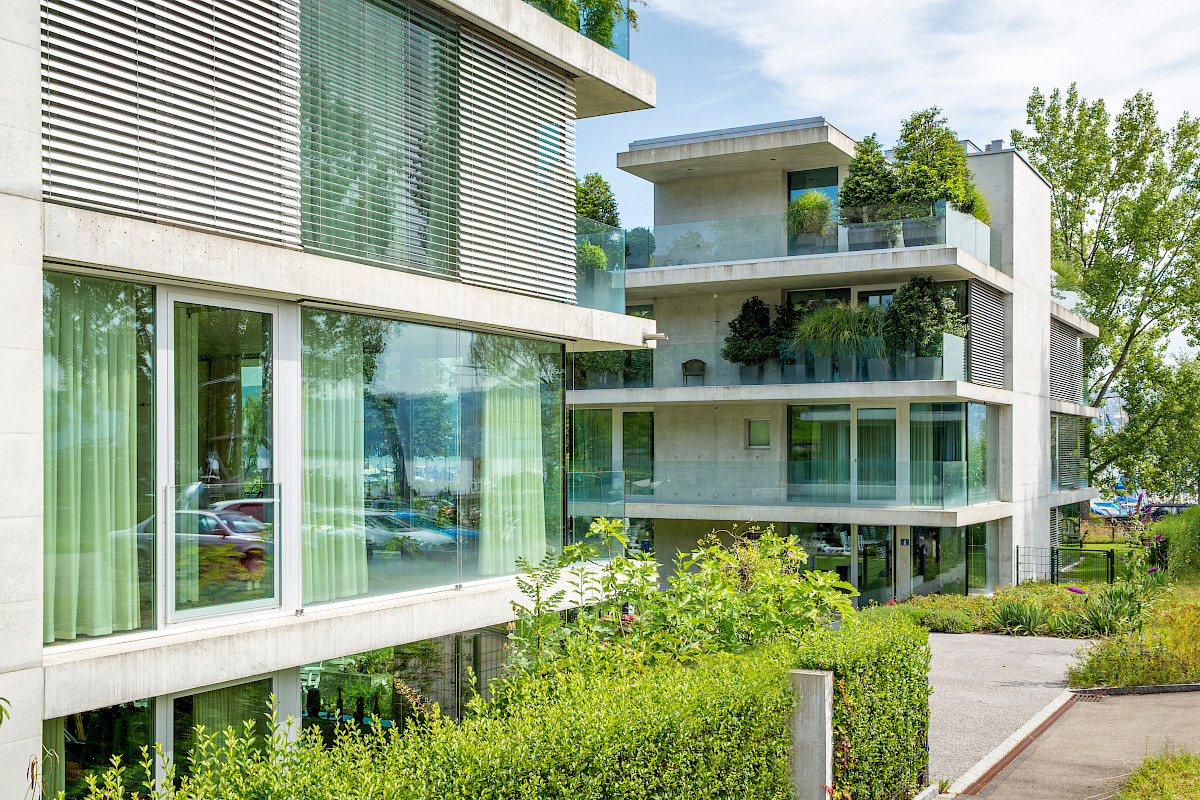Both purchase and housing costs are on the rise in the Swiss real estate market (Image: shutterstock / Mikolaj Niemczewski)
The dynamics of the Swiss real estate market are changing due to rising interest rates and energy prices, as well as the continuing decline in the number of vacant apartments. Interest in buying a home is waning slightly, but the rush for low-cost rental apartments in central locations remains high.
Just a few months ago, potential homebuyers were thronged to viewing appointments. The chance of winning the race was almost hopeless. Home seekers had three options to increase their buying possibilities: they had to expand their search range, lower expectations, or adjust their budget upwards, writes the ZKB in its latest real estate barometer.
Since the budget for most of those looking for it was already exhausted, they could only realize their dream of owning a home by making compromises. Many homebuyers have accepted large distances of movement or a deterioration in the micro-location or quality of the property compared to their previous rental situation. There were hardly any slow sellers on the sales market. “The main thing is to own a house,” some people seemed to say to themselves.
Buying is often no more attractive than renting
Studies and surveys explain the desire to own a home with several factors. In addition to financial considerations, security, creative freedom and prestige also play an important role. Everyone spoke in favor of home ownership in a low interest rate environment. Meanwhile, the monetary advantage vanished into thin air within a few weeks. With a 5-year mortgage and an 80% loan-to-value ratio, the cost of living for a home in Zurich is now on the level of a comparable rental apartment. In expensive locations, the latter is also slightly cheaper. Reason enough to be demanding.
As a result, individual properties for sale are no longer sold in the first round of ads, due to excessive asking prices or unattractive locations. A second attempt is increasingly needed. Some listings appear with a lower asking price, which encourages sales but sends a bad signal. Sellers are already feeling the reluctance of home seekers. Houses are no longer bought at any price.
According to the ZKB, something also happened on the supply side. With the elimination of negative interests, some homeowners seem to find it easier to separate from their property. With individual sellers, there may be a desire to see their property rise in value not just on paper, but to feel it in their own wallets.
Central apartments for rent still in demand
Furthermore, the re-letting of one’s home is no longer so attractive if it is not intended to be kept for later personal use in the family. After all, we’re still miles away from oversupply, the ZKB says. The days of oversupply are over for rental apartments too. Particularly in the canton of Zurich they are becoming increasingly scarce in central locations. This is likely to increase the rush for rental apartments.
This development indirectly stabilizes the owner-occupied domestic market, as the smaller selection of rental properties means that many people still want their own four walls. The lower number of vacant rental apartments, on the other hand, is already affecting the demand for rent. These have increased significantly in the past few months. In the city of Zurich, the homegate.ch advertised rental index recently registered record annual growth. Since the end of the restrictions, the centers are visibly more attractive again. With growth of over 6%, the city of Zurich outshines all other major Swiss cities.
Stable house prices against rising rental costs
Bottom line: Rising mortgage interest rates are having a dampening effect on demand for home ownership. ZKB analysts expect a stable domestic market, albeit with a sharp slowdown in price growth. When it comes to rentals, the dynamic points in the opposite direction. The high level of net immigration increases the demand for rental housing, while vacancies and construction activity are declining. As a result, the required rents will increase. But even existing tenants are not spared higher housing costs in view of rising energy prices. In addition, next year the benchmark interest rate will increase and with it the existing rents.


